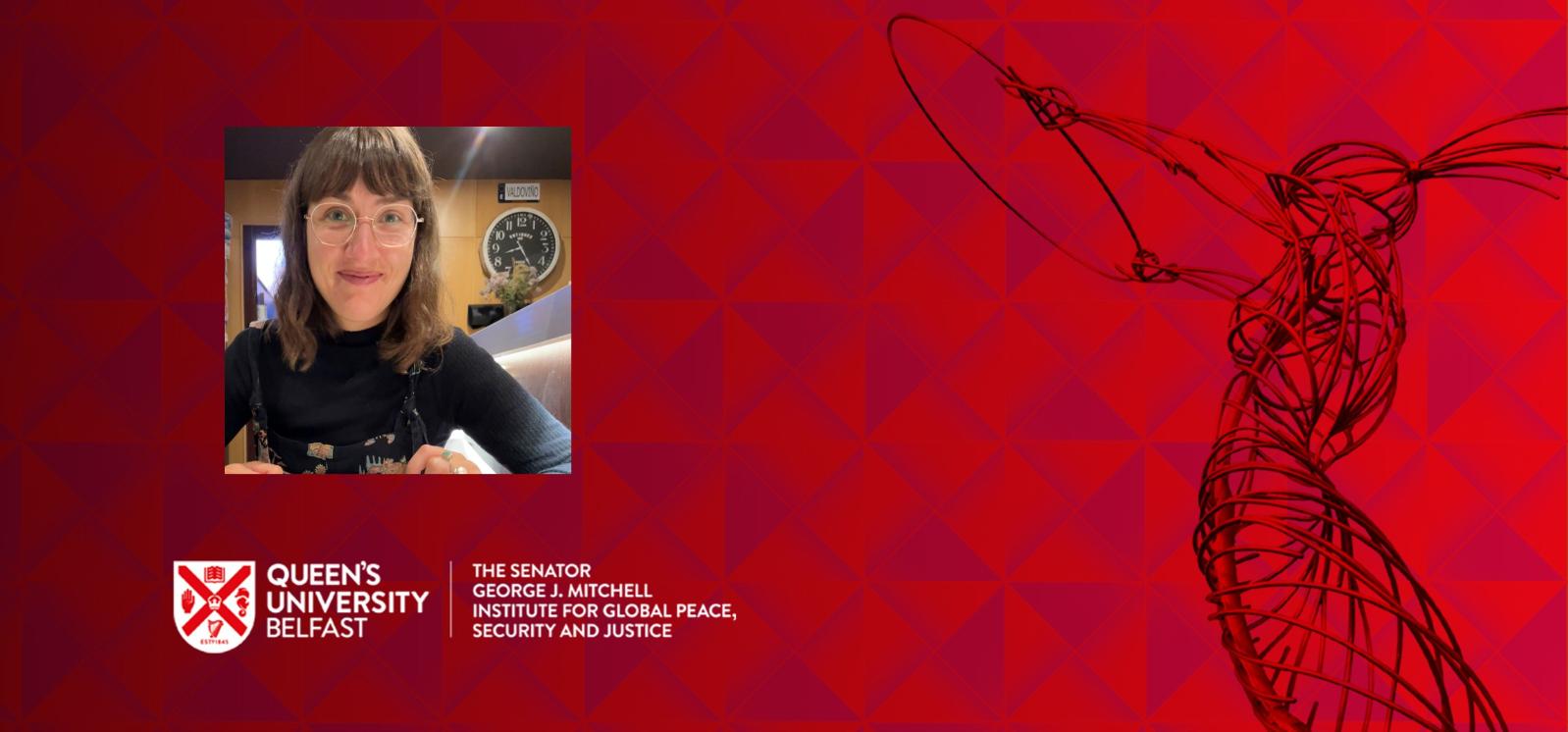Reflections on my time at the Institute as a Visiting Student
Lucy Kentish

When I first embarked on my PhD journey at the University of Bristol, my criteria was to look for responses to conflict and division through education. After months and months of trawling through article upon article my focus began to narrow on educational models designed to address deeply divided societies. My reading led me to Northern Ireland where over 90% of pupils attend separate schools according to religious background.
I decided to investigate the policies that underpin education designed to address division in Northern Ireland, namely Integrated Education and Shared Education. Integrated Education intentionally educates pupils of different religious beliefs or community backgrounds together, and Shared Education involves pupils from Protestant, Catholic and Integrated schools collaborating together on joint activities or classes. To do this I set out to speak with stakeholders across the sector of education to examine the objectives and outcomes of Shared and Integrated Education, respectively, and to hold focus groups with young people who have direct experience of Shared Education or Integrated Education.
Once we knew where I was going to do my fieldwork, my supervisor Prof Roddy Brett, suggested I get in touch with Dr Laura Dunne at Queen’s University Belfast, whom he had recently met at a conference at Yale University. I met with Laura over Teams and she kindly offered to sponsor me in applying to be a Visiting Student at the Institute where she’s a Fellow. Success! I received confirmation of my Visiting Student tenure, on the day of my birthday no less. Knowing that I would have an ‘academic home’ whilst conducting fieldwork was a relief and I couldn’t wait to get started.
Although I came to Northern Ireland to conduct fieldwork, I have been fortunate to experience so much more. I’m incredibly grateful for having the opportunity to spend a considerable amount of time here. As a social scientist I thought it necessary to live in situ to help understand the nuances, complexities and even contradictions that exist in a place living through a peace process. I arrived in October 2024 and spent the first few months acclimatising to a new pace and space, to a new vernacular, and to begin building a deeper understanding of every day life here. There is an openness and sense of community in Northern Ireland that I’ve not experienced before. I’ve connected with countless people along the way, in shops, memorial gardens, pubs, museums, even the gym reception. When locals hear my English accent I’m often asked what I’m doing in Northern Ireland and when I say, “I’m doing a PhD on education in divided societies” the most common response is, “well, you’ve come to the right place!”. This is a sure way to spark a long discussion with locals kindly sharing their experiences and thoughts with me, with a curiosity to know what I think and what I’ve found.
After those first few months of getting my bearings and fine-tuning my project I started conducting interviews with stakeholders in education and focus groups with 15-21 year olds. I received a grant from the Sydney Bailey Fund which enabled me to scale-up my fieldwork and hold more focus groups. My interactions with inspirational teachers who warmly welcomed me into their school, and conversations with young people from all across Northern Ireland were exactly what I had hoped for, and more. The young people I met were generous with their time and made great efforts to bring me into their world and everyday life. Bouncing off one another they enjoyed regaling me with tales from school, describing where they live and what they like and dislike about their schooling experience. It was the first time these young people had been asked to reflect on what they want from education in terms of mixing with other schools and what that looks like, and they had a lot to say!
Each time I walk through the campus I know I’m in a place of learning, the beautiful architecture genuinely inspires and motivates me to go about my work. Having a desk at the Institute and access to Queen’s has enabled me to get to know an array of PhD students from LINAS as well as from the School of Social Sciences, Education and Social Work (SSESW). Sharing the inevitable ups and downs of PhD life with colleagues has enhanced my experience here. Even small things like bumping into a colleague in the corridor or chatting in the kitchen over lunch are as much part of the experience as the traditional studying.
As I move into the analysis stage I want to give a heartfelt thanks to all those at SSESW who kindly give me your time and expertise, my project is all the better for it, and a special thanks to Dr Laura Dunne for our regular coffee catch ups to discuss my latest ventures and reflections – you help me beyond words. One last thank you to the Institute, thank you for welcoming me into the Institute and sharing this experience with me.
Though not without its challenges, the innovative approaches pursued in Northern Ireland provide a beacon of hope to other divided societies across the world. In September I will present at the European Conference on Educational Research (University of Belgrade) and the Conflict Research Society’s Conference (University of Kent) and much look forward to sharing and discussing my findings then.
Lucy Kentish
Lucy is a PhD Student at the School of Sociology, Politics and International Studies (SPAIS), University of Bristol.
